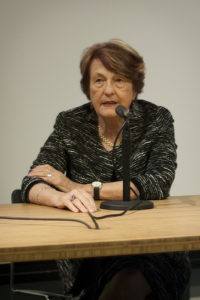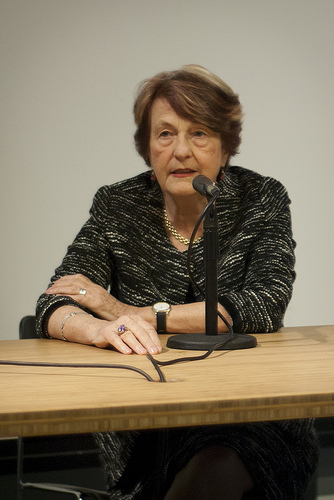Zeitungsdunkel

Weapons-grade nuclear alarmist, potential Frightbat and Nevil Shute fangirl Dr Helen Caldicott has been in the news again recently. Apparently she has been on New Zealand radio rabbiting on about how Lockheed Martin now control both the entire Industrial Military Complex specifically and also the Western World in general.
Gosh. Does seem that the Rhinemetalls, the BAE Systems, the General Dynamics, the SAABs, the Raytheons, the Boeings and the Northrop Grummans of the world, plus the Elbits and the Thales and the MBDAs and the Koingburgs really need to get their s— together.
Also Transfield Services, who, as those in the know would no doubt be already aware, have many long term defence contracts involving infrastructure and domestic support within Australia and, if not a company to get their s— together, would at least be the prime candidate to go clean it up.
Way to brownnose Lockheed Martin, Helen.
Those defence claims notwithstanding, much mirth has been made within the Hate Media over Helen’s repeated yet inconsistent claims that she read Nevil Shute’s On the Beach at age 15… or 16… or 19… or some other semi-random time before it was even published and that it changed her life.
Much mirth, although some credit where credit is due. On the Beach is concerned with a scientifically implausible but no less chilling end-of-the-world scenario where radiation from a nuclear war in the northern hemisphere is slowly and unavoidably creeping south to kill everyone else. Rocks fall, everyone dies, and apart from the fact that most of the characters involved manage to live their final weeks with dignity, they all still end up completely dead.
Not a completely upbeat book, and one from which young Helen claims to have developed a lifelong dislike of all things nuclear.
As pointed out earlier, credit where credit is due, and On the Beach is but one novel from that era that can lead to strong personal views in later life, with this author also having been deeply moved by 1950s fiction, in this case Day of the Triffids. As a result, there then developed a reluctance to watch pointless light shows in the night sky, and also a strong dislike for anything to do with plant-based renewable energies.
So, as can be clearly seen, novel reading can make a difference, although the big question being largely ignored by the mainstream media still stands: if reading On the Beach at age 15… or 16… or whatever… really changed young Helen so dramatically, then why did she still bother going to Med School?
Photo by Columbia GSAPP 










